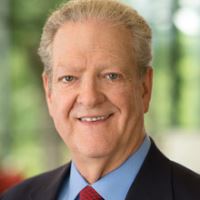Commentary on Psalm 98
Talk about inclusive!
Not only are trained musicians called upon to make a joyful noise to the Lord, but just about everything else as well: The sea and everything in it, the world and its inhabitants, even the hills are invited to join in the new song of praise for God. Just by being what it was created to be, nature spontaneously praises God and proclaims God’s purpose in creation.
In terms of its content and supposed setting, Psalm 98 is an Enthronement Psalm like Psalms 47; 93; and 95-99. But it is also a fine example of the Hymn of Praise. Hymns of Praise typically begin by inviting others to join in praise and then offering reasons for that praise as Miriam sang following the crossing of the Red Sea, “Sing to the Lord, for he has triumphed gloriously; horse and rider he has thrown into the sea” (Exodus 15:21). The section presenting the reasons for praise becomes testimony of what God has done. We praise God by telling others how God has acted in our lives. Psalm 98 follows this pattern exactly . . . and in stereo:
A Invitation “Sing to the Lord” (1a)
B Reason for praise “for . . .” (1b-3)
A’ Invitation “Make a joyful noise to the Lord” (4-9a)
B’ Reason for praise “for . . .” (9b)
The distribution of the two sections adds to the stereophonic balance of the psalm. In the first section (verses 1-3) a very brief invitation is followed by an extended presentation of the reasons while just the opposite, extended invitation followed by brief rationale, occurs in the second section (verses 4-9b).
Psalm 98 thus makes a compelling case for all creation to join in praising God, for all nations to join in the new song, recognizing that God alone is God, the creator of the universe whose power and majesty call for our response of praise . . . So why don’t we feel like joining in? Why does praise leave us cold? In a wonderful little book, Praying the Psalms, Thomas Merton suggests:
Praise is cheap, today. Everything is praised. Soap, beer, toothpaste, clothing, mouthwash, movie stars, all the latest gadgets which are supposed to make life more comfortable — everything is constantly being “praised”. Praise is now so overdone that everybody is sick of it, and since everything is “praised” . . . nothing is praised. Praise has become empty . . . Are there any superlatives left for God? They have all been wasted on foods and quack medicines.1
But our situation is more serious than this. This psalm presupposes something that we are far from experiencing, today. When we leave our worship services, following prayers and hymns that praise God as the creator and redeemer of the universe, we soon experience the deep contrast between our worship and the rest of our lives. Our world is not the world of praise the psalm envisions. All nations do not acknowledge God or praise his name. Most of the world seems to get along quite well without benefit of divinity.
In fact, the situation we face is just the opposite of that faced by our psalmist, who lived in a world full to the brim with “gods,” each competing for allegiance. Every nation had their own, and sometimes two, or three, or twenty-three. Throughout its long history, Israel had to struggle against the temptation to worship these false gods as they were wooed and seduced on the midway of this carnival of idols.
How different from our experience! Instead of the psalmist’s world, where sun, moon, and stars are falsely worshiped as gods, we live in a world that refuses to recognize the God who created the sun, moon, and stars. How can this psalm, addressed to a world awash in too many gods speak to us in a world with room for none?
For starters, we need to admit our post-modern difficulty with this psalm’s insistence on God’s rule, a difficulty that often comes under the guise of pluralism. But not the kind of pluralism that rightly recognizes that people are different, that they have differing religious beliefs, and that they should be allowed to live their life of faith and worship as they please. I mean the kind of pluralism that moves beyond tolerance and begins to believe that reality, itself is pluralistic; that truth, itself is relative; that there can be no one true God; that the Lord does not reign; or that Jesus Christ is only Lord for people like me. This is what drains faith of any content, and urges us to declare that, therefore, it doesn’t matter what we believe as long as we’re sincere.
Psalm 98 is utterly opposed to this idea of a fragmented world where the claims of God have no bearing on the rest of our lives. The frame at the heart of our psalm “make a joyful noise to the Lord, all the earth . . . make a joyful noise before the King, the Lord” (verses 4a, 6b) declares that God is creator of heaven and earth and thus God of all life and all people, whether they acknowledge it or not, whether they are religiously inclined or not, whether they worship other gods or not. The inclusiveness of the psalm proclaims the exclusiveness of the truth that there is only one God to whom alone belongs our worship and praise.
1Thomas Merton, Praying the Psalms, (Collegeville, MN: Liturgical Press, 1956), 5.

May 13, 2012